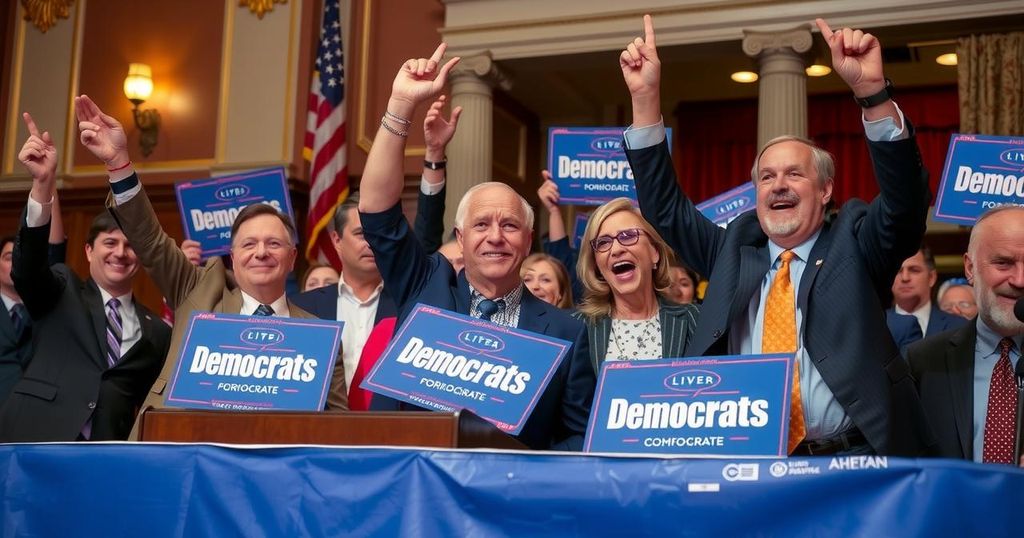Democrats in Virginia retain their slim majority in both legislative chambers following special elections in Loudoun County. Kannan Srinivasan and JJ Singh emerged victorious, with plans to promote legislation on key social issues including cost-of-living, gun safety, and constitutional amendments on voting rights, marriage equality, and abortion. Their success highlights the Democrats’ continuing influence in the region, despite some Republican victories elsewhere in the state.
Virginia Democrats maintain their narrow one-seat majority in both chambers of the General Assembly following successful special elections in eastern Loudoun County. Kannan Srinivasan, an accountant turned politician who has previously served in the House of Delegates, secured his seat in the state Senate representing District 32, defeating Republican Tumay Harding by more than 20 points. Srinivasan emphasized his commitment to addressing cost-of-living challenges, gun safety measures, and constitutional amendments regarding abortion rights, marriage equality, and voting rights restoration post felony conviction.
His victory positions him as the first Indian immigrant to serve in the state legislature and he replaces Suhas Subramanyam, the first Indian-American elected to Congress from Virginia. In conjunction with Srinivasan, JJ Singh was elected to the House of Delegates for District 26. Singh also emerged victorious by over 20 points against Republican Ram Venkatachalam, and his priorities include gun safety legislation and curbing university tuition increases.
Both newly elected officials reflect the diversity of their community, with Singh becoming the first Sikh American in the Virginia legislature. Despite the Democratic victories in Loudoun County, the overall landscape of Virginia politics remains steady, with Republican Luther Allen Cifers III winning State Senate District 10. The newly elected officials are anticipated to promote a Democratic agenda that seeks bipartisanship, particularly in the context of Governor Glenn Youngkin’s administration’s limitations.
Turnout for these special elections was relatively low at over 15%, a trend that exemplifies the nature of special elections. Political analysts highlight that while these results affirm Democratic strengths in the region, the small scale of the elections may not provide significant insights into the broader political climate or the forthcoming presidential election.
In conclusion, the special elections serve to solidify Democratic control in Virginia’s General Assembly, allowing them to continue pursuing their legislative agenda while providing insights into the dynamics of local political engagement amidst an upcoming election cycle.
The Virginia General Assembly is comprised of two chambers: the House of Delegates and the Senate. Recent special elections have underscored the sustained influence of Virginia Democrats, particularly in urbanized areas such as Loudoun County. The electoral outcomes are pivotal as they reflect demographic shifts and changing political sentiments in Virginia. The constitutional amendments championed by the Democratic Party aim to solidify progressive social policies within the state, and maintaining legislative control is essential for the party’s strategic objectives. Moreover, the recent elections serve as a critical backdrop as Virginia prepares for upcoming national contests, including the presidential election.
The successful special elections in Virginia underscore the Democratic Party’s resilience and maintaining their majority in the General Assembly. Kannan Srinivasan and JJ Singh’s victories not only introduce new leadership but also reflect the diversity of their community. As they aim to enact a progressive agenda, including significant constitutional amendments, the outcomes will potentially shape Virginia’s political landscape in the years to come, despite broader challenges posed by the Republican Party.
Original Source: wamu.org






